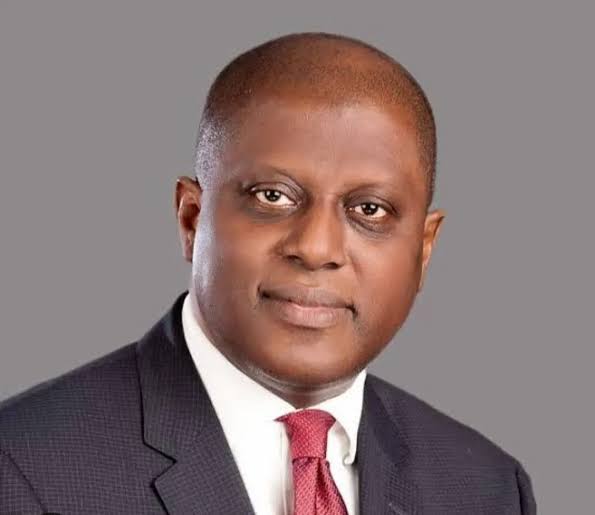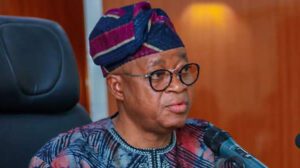


Nigeria grapples with consequences of N27trn ways & means, N10.5 trn Interventions — Cardoso
By Esther Agbo
Governor of the Central Bank of Nigeria (CBN), Yemi Cardoso, has highlighted the financial burden the country is facing due to the N27trillion Ways and Means financing and N10.5 trillion in intervention programs, which have contributed to the recent inflation surge.
Speaking at a CEO Forum in Lagos on Thursday, Cardoso explained that increased money supply and the resulting inflation have led the Monetary Policy Committee (MPC) to maintain high interest rates.
He clarified that these decisions are made by the MPC, not by him personally, and emphasized the repercussions of the substantial increases in Ways and Means and intervention programs.
Cardoso pointed out that the MPC’s primary goal is to reduce inflation, with decisions driven by data rather than emotion. He stated, “Interest rate is not set by the governor of the Central Bank. The interest rate is set by the members of the monetary policy committee.
“Thankfully, we have a monetary policy committee compromised of independent-minded people who are solely driven by data.
“The MPC has made it very clear that for them the major issue is taming inflation and has also made it very clear that they will do whatever is necessary to tame inflation.
“Sadly, we have a situation where a lot of money supply went into the system. We all saw ways and means soared to N27 trillion. We saw interventions of N10.5 trillion. It has its consequences. In large respect, that is what we are paying for now.”
He further explained that the high interest rates are temporary and will decrease as inflation moderates.
Without these elevated rates, the naira could have significantly depreciated against the dollar. Cardoso noted that month-to-month inflation has already decreased by 50% and is expected to continue its downward trend.
He said, “The MPC is not oblivious to the fact that ultimately, we do want growth. If these hikes were not done at the time they were done, the naira to the dollar was almost tipping over.
This helps to stabilize it. Secondly, it is a timing issue. It’s not something that will remain with us forever.
“Fiscal issues being moderated and the ability to suck up all the excess liquidity in the system and be able to balance things out over a period of time. That’s the important thing for the MPC as far as I can see.
“Between February and May of this year, the month-on-month rate of inflation has gone down 50%. I sense that this is not something that is a one-size-fits-all. I think in a not too distant future, the interest rate will come down.”
In May, the CBN’s MPC raised the benchmark interest rate by 150 basis points to 26.25 percent from 24.75 percent .
The Cash Reserve Ratio (CRR) for Deposit Money Banks (DMBs) was maintained at 45 percent, with the asymmetric corridor around the MPR set at +100 and –300 basis points.
The liquidity ratio of banks was kept at 30 percent. This marks the third interest rate hike in 2024, as the CBN continues its efforts to moderate inflation, which reached 33.95 percent in May 2024 according to the National Bureau of Statistics (NBS).



